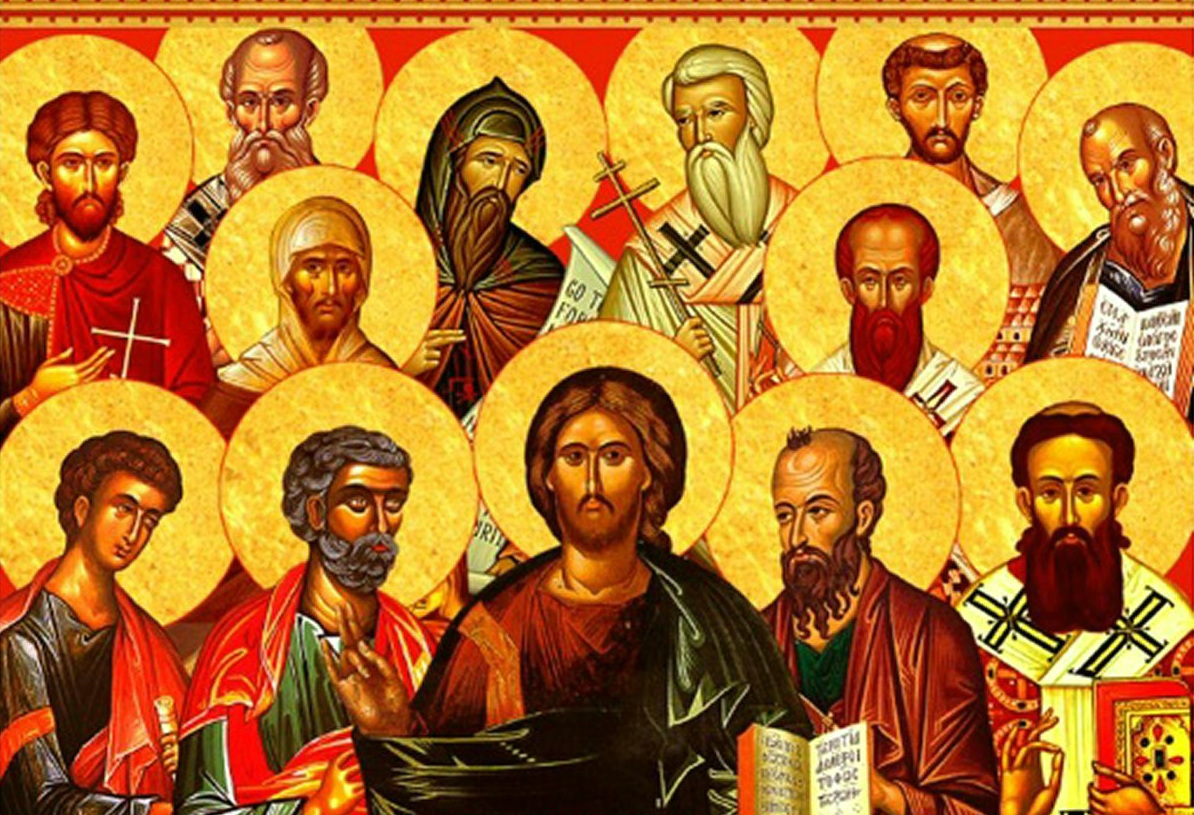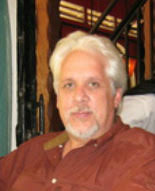
-Christ & Church Fathers, please click on the image for greater detail

-by Ken Hensley
“One of the earliest post-apostolic writers is St. Ignatius, bishop of the Church in Antioch and personal disciple of John the Apostle.
Late in his life (107-110 A.D.) Ignatius was condemned to death in the arena in Rome. He was to be fed alive to wild beasts. On his way from Antioch to Rome, he wrote letters to seven churches scattered throughout Asia Minor (modern-day Turkey), many of the same churches St. John wrote to in the Apocalypse.
In his letter to the Church in Smyrna, Ignatius mentions a certain group he clearly conceives as being outside the fellowship of the Church. This is how he describes them:
But consider those who are of a different opinion with respect to the grace of Christ, which has come unto us, how opposed they are to the will of God. They have no regard for love; no care for the widow, or the orphan, or the oppressed; of the bond or of the free; of the hungry or of the thirsty. They abstain from the Eucharist and from prayer because they do not confess the Eucharist to be the flesh of our Savior Jesus Christ, which was offered for our sins and which the Father, in His goodness raised up again. They who deny the gift of God are perishing in their disputes (Letter to the Smyrnaeans 6-7).
This was the first time I remember hearing the Eucharist described as “the flesh of our Savior Jesus Christ.” And I was hearing it in a pastoral letter, written by a man who learned his Christian doctrine from John the Apostle himself, written by a man on is way to die for that faith.
In the same letter, St. Ignatius refers to the Eucharist as “the medicine of immortality.” The medicine of immortality.
What could I say? Clearly, this was language that would never have entered my mind to use to describe the Lord’s Supper. Whether Ignatius was right in his view or had already departed from the teaching of the Bible into “magical” Catholic ways of thinking, it was beyond dispute that this early bishop and martyr held a view of the Eucharist very different from mine.
*****
I read on and came to St. Justin Martyr, the first of the great Christian apologists. Writing around 150 A.D., he also described the Eucharist, and in terms similar to those of St. Ignatius:
For not as common bread or common drink do we receive these; but since Jesus Christ our Savior was made incarnate by the word of God and had both flesh and blood for our salvation, so too, as we have been taught, the food that has been made into the Eucharist by the Eucharistic prayer set down by him, and by the change of which our blood and flesh is nurtured, is both the flesh and blood of that incarnated Jesus (First Apology 66).
To this Baptist minister, there were nearly as many strange ideas as words in this passage. Food that is “made” into the Eucharist? Food that is made into the Eucharist “by the Eucharistic prayer set down by him”? Food that by the “change of which” our blood and flesh is “nurtured”?
A prayer that “changes” bread and wine and “makes” it into the Eucharist? Never had I heard anyone speak about the Lord’s Supper as these two early witnesses did — except of course my old friend who had become Catholic.
*****
I read on and came to St. Irenaeus, bishop of the Church in Lyon and the first great biblical theologian. Writing around A.D. 180, he described the Eucharist in these terms:
Just as the bread from the earth, receiving the invocation of God, is no longer common bread but the Eucharist consisting of two things, the earthly and the heavenly, so our bodies, receiving the Eucharist, are no longer corruptible but have the hope of resurrection to eternal life (Against Heresies, IV. 18).
*****
I read on and came to Tertullian. Writing around A.D. 210, he describes what is happening in the Eucharist. In the Eucharist, he says, “the flesh feeds on the body and blood of Christ that the soul likewise may be filled with God” (Resurrection of the Flesh, 8).
I read on and came to Cyril of Jerusalem. Around 350 A.D he wrote in his Catechetical Lectures:
[A]s the bread and the wine of the Eucharist before the invocation of the Trinity… [are] simply bread and wine, after the invocation the bread becomes the body of Christ, and the wine the blood of Christ (19;7).
The problem for me was not that I could find a few references like these scattered over the first four centuries of Christian history. The problem was that I found I could continue multiplying quotations like these from virtually everyone writing in those early centuries!
St. Clement of Alexandria, St. Hippolytus of Rome, Origin of Alexandria, St. Cyprian of Carthage, St. Ambrose of Milan, St. Augustine of Hippo, and many, many more. It wasn’t just some of these early bishops and theologians and apologists that used this kind of language when speaking of the Eucharist. All of them did!
They all seemed to believe that when the words of consecration were spoken over the bread and the wine, these elements were changed. They all seemed to believe that some kind of miracle took place and that what was received in communion was no longer simple bread and wine but in some way, unknown to me, the body and blood of Christ.
As far as I could tell, there was no evidence of any period of early Christian history in which the Church believed what I believed about the Lord’s Supper.
From History Back to Scripture
The questions that ran through my mind at this point were these:
If the apostles taught that the Lord’s Supper was a simple meal of remembrance involving bread and wine as symbol, how could the early Church have gotten so far off, and so quickly, and so universally?
How is it that Christian bishops and theologians living in different centuries and scattered all over the then-known world all speak in such similar ways?
And if all of this is evidence of a grand departure from the teaching of the New Testament, how is it there no evidence anywhere of anyone saying this? Why is there no one raising his voice to complain? “Listen, brothers, this not what the apostles taught!” One can find plenty of evidence of other disputes in the early Church. Why not on this issue?
My instinct as a Protestant committed to sola scriptura was to respond to these questions as many others have responded:
Who cares? Who cares what the early Church believed and taught about the Lord’s Supper? In the end, all that really matters is what the Bible teaches. As for Ignatius and Justin and Irenaeus and Ambrose and Augustine and the rest, Isaiah 8:20: “To the law and to the testimony: if they speak not according to this word, it is because there is no light in them.”
On the other hand, was it possible that there was more support for the teaching of the early Church in the Bible than I knew? How certain was I that the doctrine of the Real Presence was unbiblical?”
Love,
Matthew
